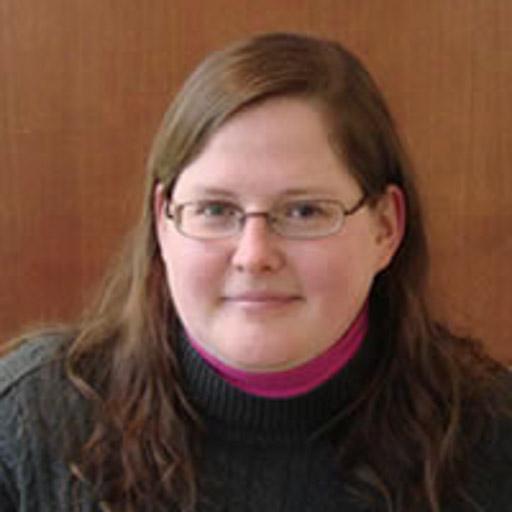
Elizabeth Bloodgood, PhD
- Associate Professor, Political Science
Are you the profile owner?
Sign in to editResearch areas: International Relations & Nongovernmental Organizations
Contact information
Website:
ORCID:
Biography
Dr. Beth Bloodgood is interested in the emergence and influence of non-governmental organizations (INGOs) and the political power of information and data. Her SSHRC-funded research (with Wendy Wong, Toronto, and Sarah Stroup, Middlebury) in partnership with Ajah examines NGO lifecycles and populations cross-nationally and over time in order to understand the relationships between national regulations, nonprofit data environments, and nonprofit regulators. The Global Registry of Nonprofit Data Sources (GRNDS) can be found at grnds.org and on the GRNDS Dataverse (https://dataverse.scholarsportal.info/dataverse/GRNDS).
Education
Columbia University, MA, Political Science
Princeton University, PhD, Politics
Research interests
International Relations; Nongovernmental Organizations; Epistemic Communities; Nonprofit Regulations; Data
Teaching activities
POLI 205 Introduction to International Relations
POLI 305 International Political Economy
POLI 398H Non-State Actors in International Relations
POLI 421 Transnational Politics
POLI 486N Complexity in International Relations
POLI 617 Knowledge in International Relations
POLI 644 Research Methods
POLI 662 International Political Economy
Publications
Books
Christopher L. Pallas and Elizabeth A. Bloodgood, eds. Beyond the Boomerang: From Transnational Advocacy Networks to Transcalar Advocacy in International Politics. Birmingham, AL: University of Alabama Press, 2022.
Journal Articles and Book Chapters
Elizabeth Bloodgood, Jesse Bourns, Michael Lenczner, Takumi Shibaike, Jenny Tabet, and Wendy Wong. (2023) “Explaining National Nonprofit Data Environments: Data to Enable or Constrain?” Nonprofit and Voluntary Sector Quarterly, 52(2), 281–303.
Elizabeth A. Bloodgood, Sarah S. Stroup, and Wendy H. Wong. (2023) “What Counts? How to Use Different Sources of NGO Data.” Voluntas 34(1): 126-132.
Elizabeth A. Bloodgood, “New Multilateralism: The UN and Governance in the Era of Nonstate Actors,” in Does the UN Model Still Work? Challenges and Prospects for the Future of Multilateralism, ed. Kim Fontaine-Skronski, Valeriane Thool, and Norbert Eschborn, eds. (pp. 57-77). Brill, 2023.
Anthony DeMattee, Takumi Shibaike, Nicholas Gertler, and Elizabeth Bloodgood. (2022) “Overcoming the Laws in Translation Problem: Comparing Techniques to Translate Legal Texts.” Qualitative and Multi-Methods Research, 20(2): 13-21.
Elizabeth A. Bloodgood. "Power to the People? Network Structures and the World Social Forum." In Beyond the Boomerang, Christopher Pallas and Elizabeth Bloodgood, eds. (pp. 62-79). Birmingham: University of Alabama Press, 2022.
Elizabeth A. Bloodgood, “New Multilateralism: The UN and Governance in the Era of Nonstate Actors,” in Does the UN Model Still Work? Challenges and Prospects for the Future of Multilateralism, ed. Norbert Eschborn. Brill, 2022.
Elizabeth A. Bloodgood. “Nongovernmental Organizations (NGOs).” In Oxford Handbook of International Political Economy, Jon Pevehouse and Leonard Seabrooke, eds. London: Oxford University Press, 2021.
Elizabeth A. Bloodgood. “Primary Data on NGOs: Pushing the Bounds of Present Possibilities.” In Routledge Handbook of NGOs and International Relations, Thomas Davies, ed (pp. 209-220). London: Routledge, 2019.
Elizabeth A. Bloodgood. “Quantifying NGOs.” In Handbook on Non-Governmental Organizations, Aynsley Kellow and Hannah Murphy-Gregory, eds. London: Edward Elger, 2018.
Elizabeth A. Bloodgood. “Being an NGO in the OECD.” In The NGO Challenge to IR Theory, edited by William DeMars and Dennis Dikzeul. London: Routledge, 2015. Pg. 130-158.
Elizabeth A. Bloodgood and Hans Peter Schmitz. “The INGO Research Agenda: A Community
Elizabeth A. Bloodgood. “The Yearbook of International Organizations and Archives for Non-
Elizabeth A. Bloodgood. “Institutional Environment and the Organization of Advocacy NGOs in
Elizabeth A. Bloodgood. “The Political Logic of Institutional Adaptation: NGOs’ Strategies
Encyclopedia Entries
Elizabeth A. Bloodgood. “INGOs.” In Palgrave Encyclopedia of Interest Groups, Lobbying, and Public Affairs, Phil Harris, Alberto Bitonti, Craig S. Fleisher, and Anne Skorkjaer Binderkrantz, eds. Palgrave Macmillan, 2020. https://doi.org/10.1007/978-3-030-13895-0.
Elizabeth A. Bloodgood. “Transnational Advocacy Networks.” International Encyclopedia of Civil Society (2nd ed.), Regina A. List, Helmut K. Anheier, and Stefan Toepler, eds. Springer, 2023.
Public Outreach Publications
Elizabeth Bloodgood, Tosca Bruno-van Vijkeijken, Nina Hall, George Mitchell, Christopher Pallas and Hans Peter Schmitz. “The Future of Transnational NGO Advocacy.” Stanford Social Innovation Review, May 20, 2019, https://ssir.org/articles/entry/the_future_of_transnational_ngo_advocacy.
Elizabeth Bloodgood and Tristan Masson. “Digital Technology and the Changing Face of Diplomacy.” Policy Options, March 16, 2018. http://policyoptions.irpp.org/magazines/march-2018/digital-technology-and-the-changing-face-of-diplomacy/
Elizabeth Bloodgood and Tristan Masson. “Twitter’s Struggle to Thwart Threats to Democracy.” The Conversation, May 29, 2018. https://theconversation.com/twitters-struggle-to-thwart-threats-to-democracy-96840


